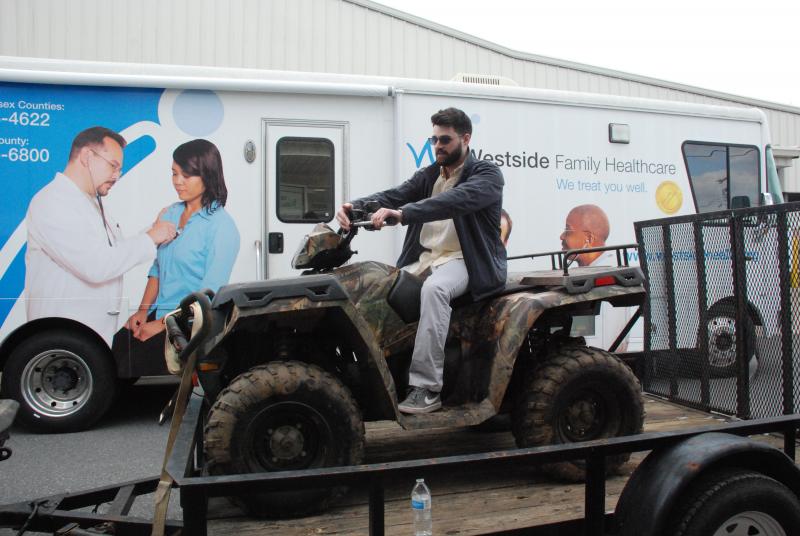Pesticide safety, accident prevention highlight conference
Dr. Kerry Richards was the keynote speaker at the Delaware Farm Bureau’s third annual Delaware Ag Safety Conference held March 6 in Harrington.
Richards, who works part time for University of Delaware Cooperative Extension, is president of the American Association of Pesticide Safety Educators. Her talk was on reducing pesticide exposure.
Richards listed the toxicity signal words on chemicals, which are based on LD50 values, or the lethal dose of a substance required to kill 50 percent of the test population. “Danger/Poison” must appear with skull and crossbones on labels of highly toxic chemicals. “Warning” is for moderately toxic chemicals. “Caution” is for slightly toxic substances, where there is concern for mild skin, eye or respiratory irritation.
Richards added the word “Danger,” which must go on Hazard Class I materials because the product is highly toxic based on corrosive or irritant potential. Contact with the material may cause permanent or severe skin, eye or respiratory damage.
The four routes of exposure to pesticides are through skin; through eyes by splashing or contact with contaminated hands; by inhalation, usually when using fine dusts and mists, or when mixing and loading concentrates; and orally, typically due to improper storage in other than original containers.
The best ways to avoid a pesticide poisoning are to read and follow the label, choose the lowest-toxicity pesticide when possible, and wear personal protective equipment.
Other speakers shared incidents when they had not followed safety precautions and suffered injuries. Presenter Dominic DiOssi of Nationwide was nearly killed in 2013 when he drove too fast on an ATV in the mountains of Pennsylvania. He lost control and was thrown over the handlebars when the ATV hit a tree. With one leg almost completely severed and the other broken, he had to pull himself to the road where, fortunately, his cousin found him. He now has a prosthesis for his right leg and a rod in his left leg.
Co-presenter Mike Gillett, also of Nationwide, listed several steps ATV riders should take in order to help prevent such accidents: do a pre- and post-trip check of tires and wheels, controls and cables, lights and electrical system, oil and fuel, and chain and/or drive shafts. Wear a helmet, boots, gloves, goggles, long pants and long sleeves. Travel at a safe speed for the terrain, visibility and one’s personal experience. No joy riding, he emphasized.
Tyler Schrock, a registered respiratory therapist at Bayhealth Kent Campus, warned of several lung diseases such as COPD, asthma and lung cancer, that can result from exposure to dust, aerosols, fungus, hay, mushrooms, microorganisms in greenhouses, and airborne allergens on farms. He encouraged those present to limit exposure to these substances by using a ventilation system, ensuring safe cleanup, substituting safer products when possible, wearing personal protective equipment, and getting regular screening and imaging.
Nick Sawyer and Brian Ferguson of Delaware State Fire School presented a CPR demonstration. They said Heartsaver courses are available through the fire school. To inquire about a course for a farm or business, call 302-739-4773.
The safety conference was presented in partnership with Delaware Department of Agriculture, University of Delaware Cooperative Extension, Delaware State Grange, Delaware State Fire School and Nationwide.























































